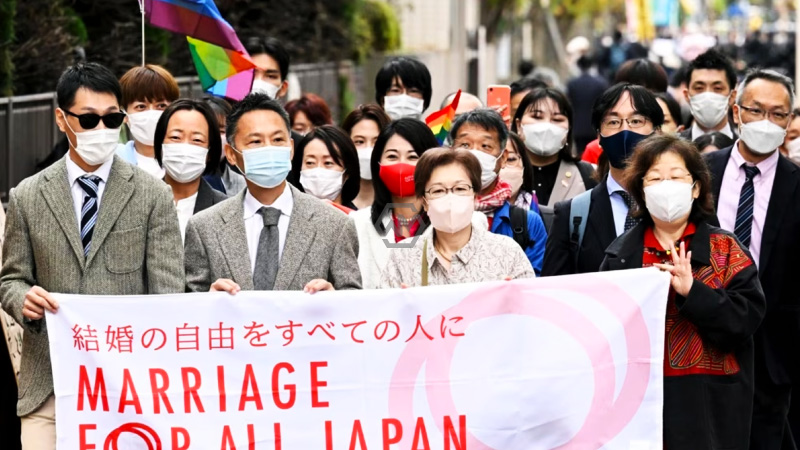The only Group of Seven countries without legal protection for same-sex partnerships has taken a step towards marriage equality when a Japanese court determined that prohibiting same-sex unions is unconstitutional.
The Nagoya District Court is the second in the past two years to declare that a law prohibiting same-sex unions is unconstitutional. According to the Japanese constitution, a man and a woman must get married. Activists and supporters of the decision applauded the outcome.
Same-Sex Unions
Even though public opinion polls indicate that 70% of people favor same-sex unions, the Conservative government‘s ruling Liberal Democratic Party is against it.
Despite dismissing an adviser responsible for the uproar over same-sex unions, Kishida is still uncommitted to dialogue. Same-sex couples are permitted to enter into partnership agreements in more than 300 Japanese towns, although the scope of these agreements is restricted to inheritance, parenting rights, and hospital visits.
- Japan’s court upholds an unconstitutional same-sex union ban in Group of Seven countries.
- Nagoya District Court declares same-sex marriage law unconstitutional.
- Kishida dismisses adviser over same-sex unions, limited partnerships in 300 towns.
These partnerships are not entirely sufficient, the court found in its decision. Before hosting the G7 summit, the government promised to enact a law encouraging the acceptance of LGBT persons, but conservative opposition caused the measure’s passage to be postponed.
The original draught, according to critics, called for outlawing discrimination based on sexual orientation and gender identity; however, it was eventually amended to read “there should be no unfair discrimination.”
As businesses urge for greater diversity to boost their competitiveness on the global stage, Japan is coming under increased pressure from other G7 countries and economic organizations.



